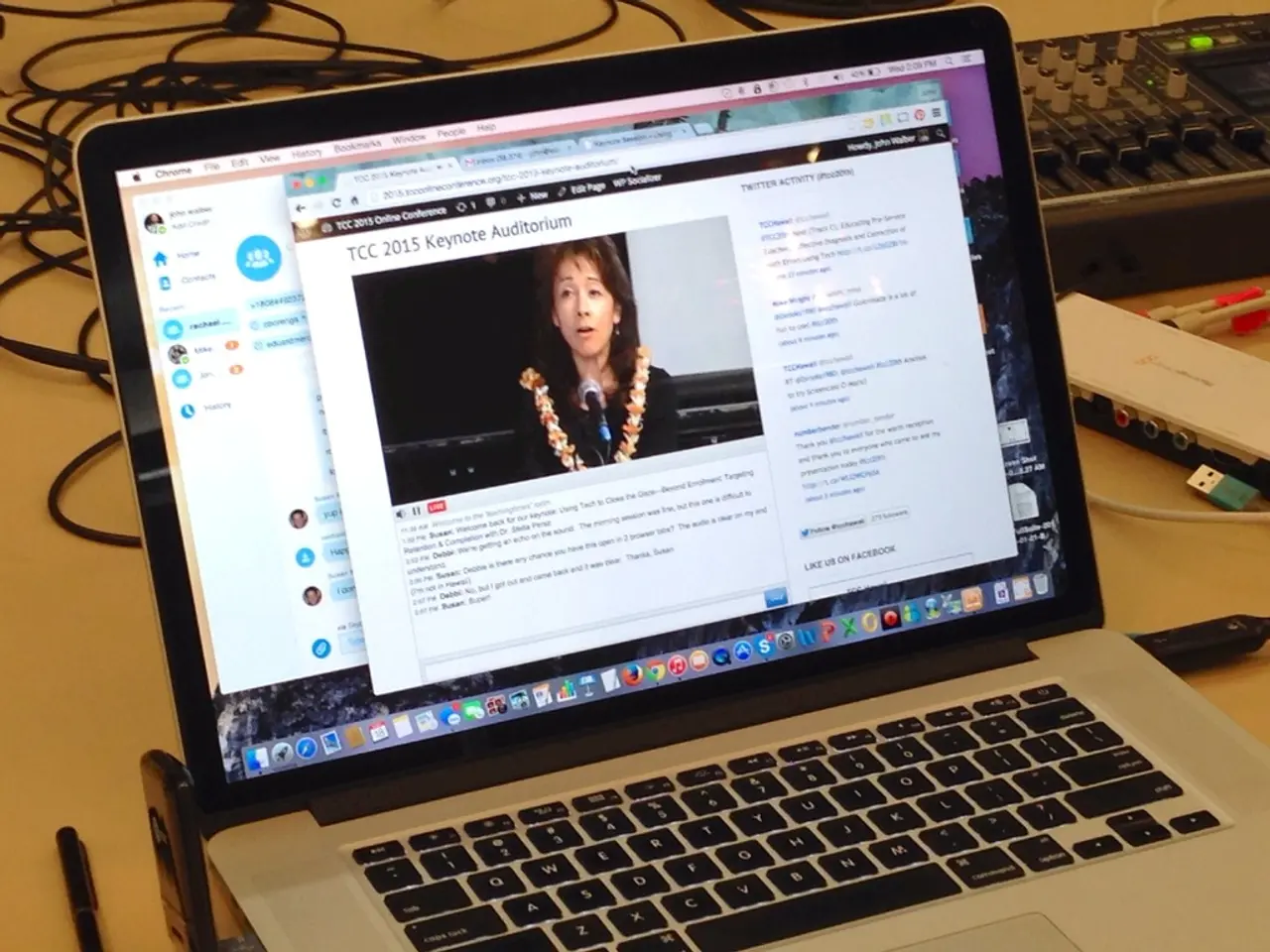Intel's Crossroads: Insights for Lip-Bu Tan from Andy Grove and Coca-Cola's Playbook
In today's fast-paced world of technology and business, making the right decisions at the right time is crucial. This is especially true for companies facing strategic inflection points, where bold, sometimes risky changes are necessary to stay ahead. The stories of Intel and Coca-Cola, two iconic brands, offer valuable lessons about transformational bets.
Currently, Intel's CEO, Lip-Bu Tan, is navigating a complex maze of technology, markets, and geopolitics, including potential involvement from the US government. His task is more nuanced than that of his predecessor, Andy Grove, who led Intel through a transformational move known as "Burn the boats and head inland." This decision resulted in Intel becoming the engine of the PC revolution.
However, Intel's success was not without its pitfalls. Complacency and monopolistic thinking blinded the company to key industry shifts, such as the rise of foundry models led by TSMC and competitors like AMD. This misjudgment, often referred to as Intel's "Pearl Harbor moment," serves as a stark reminder of the perils of failing to recognize and act on transformations.
Meanwhile, Sergio Zyman, known for revolutionary marketing at Coca-Cola, offers another perspective. His approach, which included bold, aggressive marketing and product changes, resulted in the launch of Diet Coke—a customer-centric gamble that reshaped the soda market. However, his most famous move, the launch of New Coke, born from fear of Pepsi's challenge and flawed market research, alienated Coca-Cola's loyal customer base and serves as a touchstone for corporate overthinking.
From these cases, we can draw several key lessons for modern companies. Firstly, commit fully and promptly to transformational decisions once the strategic inflection point is clear, avoiding paralysis. Secondly, use psychological distancing to overcome biases tied to past identities, enabling objective decisions about necessary change. Thirdly, stay vigilant and paranoid to industry shifts; resting on past success or monopolistic views can hide emerging threats until it’s too late. Lastly, recognize that transformational bets carry inherent risk and require careful judgment, understanding consumer and market dynamics to avoid alienation or fallout.
In the end, transformational bets are necessary but risky. Success depends on timely commitment, openness to change, rigorous market awareness, and readiness to pivot if needed—failing which companies risk decline or disruption despite bold intentions. As Lip-Bu Tan charts his course for Intel, he will need to prioritize real, visible wins, cut through complexity without losing the customer's voice, and remember the core lesson from Grove's and Zyman's experiences: the importance of clarity of purpose and the humility to adapt.
[1] Grove, A. P. (1996). Only the Paranoid Survive. Simon and Schuster. [2] Anderson, E. (2014). Tales of the Alaskan Oil Fields: Lessons for Business and Life. Independently published. [4] Grove, A. P. (2006). Swimming Across: A Memoir. Houghton Mifflin Harcourt. [5] Zyman, S. (2010). The End of Marketing as We Know It. John Wiley & Sons.
Read also:
- Catastrophe at a U.S. Steel facility in Pennsylvania results in the loss of two lives. crucial details unveiled
- Manipulating Sympathy: Exploiting Victimhood for Personal Gain
- Auto Industry Updates: Geotab, C2A, Deloitte, NOVOSENSE, Soracom, and Panasonic in Focus
- Exploring Money-Making Opportunities in Digital Gaming Worlds




